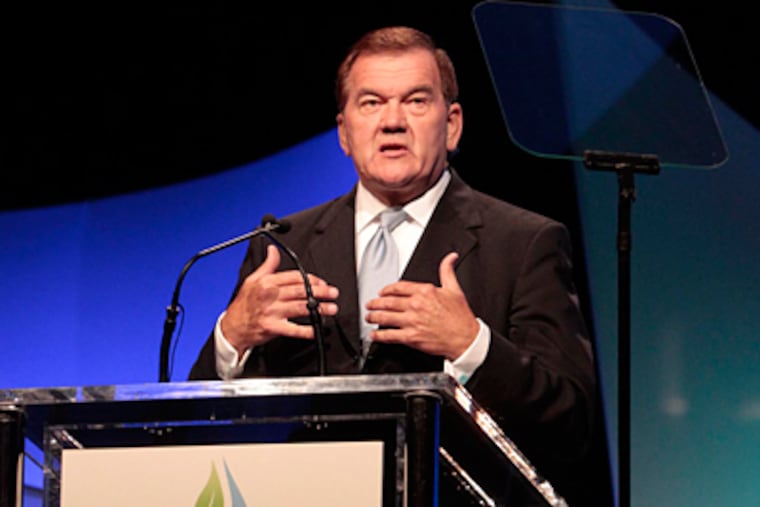Hiring disabled is good business
When I was governor, I had the privilege of leading trade missions to explore international opportunities for Pennsylvania companies. I came to know many business leaders personally, and I learned that successful American companies all have something in common: a motivated workforce empowered to deliver results.

When I was governor, I had the privilege of leading trade missions to explore international opportunities for Pennsylvania companies. I came to know many business leaders personally, and I learned that successful American companies all have something in common: a motivated workforce empowered to deliver results.
That's why I'm disappointed that some corporate executives have hastily prejudged a proposed federal rule change that would help make the workforce more inclusive. The proposal is particularly meaningful to me because I proudly chair the National Organization on Disability, which promotes the full participation of America's 54 million people with disabilities in all aspects of life - most notably, employment.
Nearly eight in ten working-age Americans with disabilities are unemployed. Twenty-two years after the Americans with Disabilities Act was passed, this statistic is simply unacceptable.
The U.S. Labor Department has given official notice of the rule change to update the Rehabilitation Act, which prohibits employment discrimination on the basis of disability by federal agencies and companies doing business with the federal government. The change would require federal contractors and subcontractors to set a goal of hiring enough people with disabilities to account for 7 percent of their workforces. This goal is designed not as a quota, but as a tool for employers to measure their progress toward equal employment opportunity and to assess any barriers to it.
Last week in New Brunswick, the National Organization on Disability hosted a forum on the proposed changes that included Labor Department officials and executives from companies such as Prudential, Sodexo, Toys "R" Us, and Pitney Bowes. The language in the rule change isn't perfect, and it could be more business-friendly. But instead of knee-jerk reactions, we should have a constructive dialogue about how to ensure that the change is good for people with disabilities and good for business.
Employers report that an average of 3 percent of their workforces already consist of people with disabilities, according to a recent Harris survey for NOD and the Kessler Foundation. That's probably an underestimation, because employers aren't routinely tracking the statistic. So the 7 percent goal is well within reach.
In partnering with businesses such as Lowe's and Toys "R" Us to develop workplace disability programs, we've found that businesses that make hiring people with disabilities a priority benefit in many ways. A diverse workforce that includes people with disabilities makes good business sense. Just as we have seen consumers embrace companies with effective energy, environmental, and corporate-citizenship programs, we believe they will reward companies that hire people with disabilities as well. Such companies deserve our thanks and our business.
People with disabilities constitute America's largest minority. They are a vibrant part of our families, neighborhoods, and communities. Let's live up to our national promise to give them equal opportunity in the workplace as well.